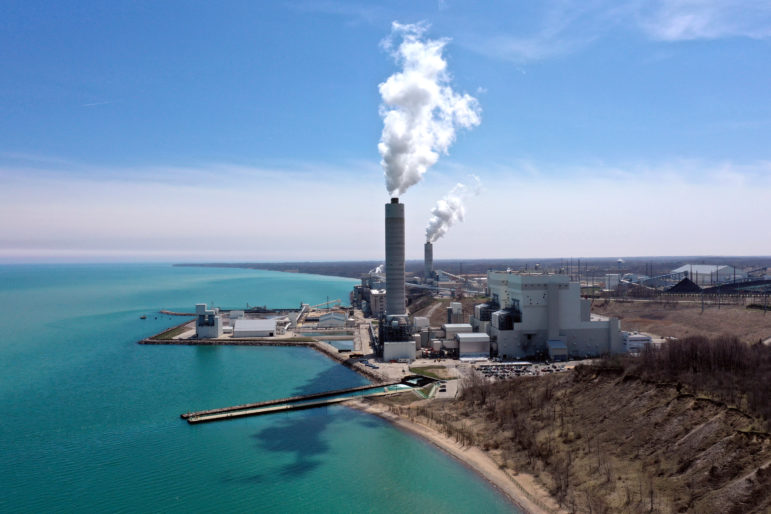The Wisconsin budget remains overdue, as lawmakers try to reach a deal on transportation and other funding issues. Our capitol reporter tells us where negotiations stand. Volvo announced last week that it would transition to producing electric cars only, and France will end sales of gas and diesel powered vehicles by 2040. We discuss what these changes mean for the auto industry as a whole. We also hear about new studies challenging the traditional timeline of human evolution.
Featured in this Show
-
State Budget Negotiations: Why It's Complicated For Republicans To Strike A Deal
WPR’s State Capitol Bureau Chief examines the give-and-take as the two Republican caucuses work through compromise spending on road projects, K-12 public schools and tax cuts. We’ll get the latest on the state budget process and what it means for Wisconsinites.
-
Challenging The Timeline Of Human Evolution
We look at some recent studies challenging the timeline of human evolution with Discover Magazine’s Gemma Tarlach.
-
Big Changes Coming For The Auto Industry
Tesla is ramping up production of their electric cars, Volvo is moving away from combustion engines, and France will end all sales of gasoline and diesel-powered vehicles by 2040. We’ll look at what this shift means for the auto industry, and for consumers.
-
Analyst: Electric Vehicles Near Tipping Point
When automobile company Volvo announced last week the rollout of five fully electric models between 2019 and 2021, it caused quite a stir.
“Goodbye to the gas pedal,” wrote the Chicago Tribune. “Past And Present, Volvo Has Always Been The Future Of Cars,” affirmed a Wired headline.
Volvo isn’t alone. Tesla shipped its first Model 3 electric cars this week to customers, which caused an equal buzz. And with a $35,000 sticker price, it’s one of the most affordable yet.
So, has the electric car gone mainstream?
Not quite, says Michelle Krebs, a Detroit-based executive analyst for Autotrader. Krebs has spent 35 years covering and observing the auto industry as a journalist and auto analyst.
“We will have gasoline engines for a good, long time,” she said. “But we are seeing automakers and governments regulate more emission-free or low-emission vehicles going forward.”
Gas prices soared in 2012, leaving some to speculate back then that electric cars were on their way. But now, gasoline is cheap, Krebs said. And that is keeping traditional vehicles competitive with electric cars, especially without an infrastructure to support an electric switch.
“You and I are used to just pulling into a gas station, topping it off. You can’t do that with an electric vehicle,” she said. “So we’re a ways away from that.”
Plus, over the past 10 years, traditional vehicles have become much more efficient. The trucks of today aren’t the same as the trucks from a decade ago, Krebs said, garnering nearly the same mileage as a standard car.
But other countries have a chance to push the United States in the electric direction.
For example, Volvo is owned by Chinese auto company Geely.
“China’s got terrible air pollution problems,” Krebs said. “And so they have been really looking at pushing electric vehicles to help with that problem.”
The country has the largest car market in the world, so change there will have an influence.
“When China goes all electric, that will be the tipping point, because the economies of scale will be there and it will just shift the dynamic,” Krebs said.
Other European countries view electric or autonomous cars as potential solutions to traffic congestion.
France has pledged to ban sales of gasoline and diesel cars by 2040, and Dutch bank ING estimates all new car sales in Europe will be electric by 2035.
However, the electric car is still held back by battery capacity. Krebs said there’s still a lot of work to be done to create the perfect battery.
“They’re pretty heavy and bulky. What everybody’s looking at is, how do you get more power into smaller batteries and get the cost down?” she said.
Chevrolet’s hybrid car Volt was a breakthrough in that respect, Krebs said. But hybrid cars aren’t new. The challenge will be creating affordable, long-lasting electric cars, she said.
With modern tech companies like Google and Apple thrown into the mix, competition is driving the game.
Episode Credits
- Rob Ferrett Host
- Kate Archer Kent Host
- Kate Archer Kent Producer
- Amanda Magnus Producer
- Judith Siers-Poisson Producer
- Shawn Johnson Guest
- Gemma Tarlach Guest
- Michelle Krebs Guest
Wisconsin Public Radio, © Copyright 2024, Board of Regents of the University of Wisconsin System and Wisconsin Educational Communications Board.




